Changes in the organization of health services in developing countries have led to district levels assuming more responsibility for the planning, delivery and quality of community health care. This fully up-dated new edition has been produced to help those working in the district laboratory, and those responsible for the organization and management of community laboratory services and the training of district laboratory personnel. Replacing the previous publication Medical Laboratory Manual for Tropical Countries, this book provides an up-to-date practical bench manual, taking a modern approach to the provision of a quality medical laboratory service.
District Laboratory Practice in Tropical Countries
KShs 21,420.00
Changes in the organization of health services in developing countries have led to district levels assuming more responsibility for the planning, delivery and quality of community health care. This fully up-dated new edition has been produced to help those working in the district laboratory, and those responsible for the organization and management of community laboratory services and the training of district laboratory personnel. Replacing the previous publication Medical Laboratory Manual for Tropical Countries, this book provides an up-to-date practical bench manual, taking a modern approach to the provision of a quality medical laboratory service.
2 in stock
Related products
-
Basic Life Support Provider Manual – A Comprehensive Guide Covering the Latest Guidelines (Bls, ACLS and Pals)
Comprehensive Basic Life Support Provider Manual covering the latest BLS, ACLS, and PALS guidelines. Perfect for healthcare professionals and students preparing for certification.
Are you looking to get your BLS / CPR certification? This concise, and easy-to-understand manual has been created by doctors at Medical Creations and complies with the latest 2020 guidelines released by the American Heart Association (AHA). These guidelines are updated every five years. You will find questions at the end of each chapter so that you can test your knowledge and see if you remember everything. Most people pass the BLS course if they correctly answer the questions in this manual. The answers are located at the back of the book.
This book is designed for everyone aiming to undergo BLS / CPR training. It seeks to establish a sound understanding of the principles of BLS and the latest guidelines. All the protocols illustrated here are based on up-to-date evidence.
Basic Life Support (BLS) refers to a set of procedures that can be learned to prolong survival in life-threatening situations until more professional help is available. Any individual can become certified in basic life support protocols. However, these protocols are frequently updated based on the latest evidence available, and every individual who undergoes BLS certification may need to refresh their knowledge every two years.
Medical professionals usually have a sound understanding of basic life support protocols. However, even then, it is essential for them to frequently undergo certifications to update their knowledge regarding the latest evidence-based protocols. This handbook is designed for both medical professionals and non-healthcare individuals. It aims to establish a sound understanding of the mechanisms underlying basic life support.
Thanks to this book, you will:
- ..Have a clear understanding of the principles of BLS and the latest guidelines
- ..Be able to take the BLS course
- ..See if you remember everything thanks to the questions after each chapter
-
Modern Blood Banking & Transfusion Practices
KShs 12,460.00ASCP requirement.“To pass the ASCP and become a licensed medical lab tech, this text is the ultimate blood bank source for the required classes.”—Amazon Reviewer
Great resource for anyone in a Medical Technology or Medical Laboratory Science Program!I would highly recommend this book!”—Mary L., Amazon Reviewer
“Amazing legendary book in the field. Helpful for practicing Transfusion Medicine and Hematology.” —Zubair S., Amazon Reviewer
Join the generations of students who have embarked on successful careers with a firm foundation in the theory and practice of blood banking and transfusion practices. Denise Harmening’s classic text teaches you not only how to perform must-know tests and tasks, but to understand the scientific principles behind them.
You’ll begin with a review of the basic concepts of red blood cell and platelet preservation, genetics, immunology, and molecular biology. Then you’ll move to the hows and whys of clinical practice. And, you’ll be prepared for new advances in the field.
-
The Global Family Planning Revolution: Three Decades of Population Policies and Programs (Moving Out of Poverty) Paperback
KShs 7,000.00The striking upsurge in population growth rates in developing countries at the close of World War II gained force during the next decade. From the 1950s to the 1970s, scholars and advocacy groups publicized the trend and drew troubling conclusions about its economic and ecological implications. Private educational and philanthropic organizations, government, and international organizations joined in the struggle to reduce fertility. Three decades later this movement has seen changes beyond anyone’s most optimistic dreams, and global demographic stabilization is expected in this century.
‘The Global Family Planning Revolution’ preserves the remarkable record of this success. Its editors and authors offer more than a historical record. They disccuss important lessons for current and future initiatives of the international community. Some programs succeeded while others initially failed, and the analyses provide valuable guidance for emerging health-related policy objectives and responses to global challenges.
-
Introduction to Epidemiology
KShs 4,820.00Recognized by Book Authority as one of the best Public Health books of all time, Introduction to Epidemiology is a comprehensive, reader-friendly introduction to this exciting field. Designed for students with minimal training in the biomedical sciences and statistics, this full-color text emphasizes the application of the basic principles of epidemiology according to person, place, and time factors in order to solve current, often unexpected, and serious public health problems.Students will learn how to identify and describe public health problems, formulate research hypotheses, select appropriate research study designs, manage and analyze epidemiologic data, interpret and apply results in preventing and controlling disease and health-related events. With real-world examples in the form of case studies and news files in each chapter, Introduction to Epidemiology is an accessible and effective approach to learning epidemiology.The Eighth Edition features:- Same organization as the prior edition allowing for easier transition- New or expanded coverage of the models of causation, methods of age adjustment, age-period cohort models, incubation and latency periods, and receiver operating characteristic (ROC) curves- Clearer connection between statistical inference and causal inference- New and updated practical examples and News Files help solidify concepts and show real-world application- Updated tables and figures throughout- Access to Navigate 2 online learning materials, including a comprehensive and interactive eBook, student practice activities and assessments, learning analytics reporting tools, and more- A built-in adaptive learning feature enables students to take self-assessments before or after reading a chapter. Based on their performance they can map out their own custom study plan that directs them to the areas of the text to review.
-
Management Principles for Health Professionals
KShs 7,420.00Management Principles for Health Professionals is a practical guide for new or future practicing healthcare managers. The customary activities of the manager―planning, organizing, decision making, staffing, motivating, and budgeting―are succinctly defined, explained, and presented with detailed examples drawn from a variety of health care settings. Students will learn proven management concepts, techniques, models, and tools for managing individuals or teams with skill and ease.The Eighth Edition continues to present foundational principles of management in the context of contemporary health care. With timely coverage of such topics as medical cost sharing; use of robots; ER by appointment; increased use of observation units; renewed use of flextime staffing and scheduling; use of social media on the job, and more, this thoroughly updated text addresses the latest trends and issues that today’s health care manager is likely to encounter.Key Features- Presents 2 new tools ―The Manager’s Wheel Book and the Management Reference Portfolio ― to help new managers better understand their role and responsibilities and to aid existing managers in understanding their organization in detail- Covers managing care in a wide variety of health care settings (urgent care centers, specialty clinics, home care, etc.) outside of the traditional hospital setting.- Addresses technology and its impact, including eVisits/telemedicine, implementation of electronic health records, connectivity and the expectation that workers will respond during off hours via email and instant messaging, etc. – Offers expanded coverage on the importance and impact of corporate culture, the values of transparency and accountability, leadership style, and competitiveness.- Includes detailed examples of reports, plans, directives, union contracts, and more.
-
Community-Based Participatory Research for Health: Advancing Social and Health Equity 3rd Edition
KShs 7,840.00The definitive guide to CBPR concepts and practice, updated and expanded
Community-Based Participatory Research for Health: Advancing Health and Social Equity provides a comprehensive reference for this rapidly growing field in participatory and community-engaged research. Hailed as effective by the Centers for Disease Control and Prevention, CBPR and CEnR represent the link between researchers and community and lead to improved public health outcomes.
-
Molecular diagnostics: Fundamentals, Methods, and Clinical Applications
KShs 8,680.00Molecular diagnostics continues to grow in importance in the clinical laboratory. This respected text will prepare your students with a grounding in the fundamental principles of molecular biology. current methods, and their clinical applications.
With a focus on the application of molecular concepts to diagnostic purposes, the text explains and illustrate the use and interpretation of molecular-based assays in patient care. Now with an expanded discussion of nucleic acid sequencing, with added emphasis on next generation sequencing (NGS), and updated coverage of proteomics and mass spectrometry applications, your students will have the most current information available today.
-
The Brain That Changes Itself
KShs 1,095.00An astonishing new science called neuroplasticity is overthrowing the centuries-old notion that the human brain is immutable. Psychiatrist and psychoanalyst Norman Doidge, travelled around the US to meet both the brilliant scientists championing neuroplasticity and the people whose lives they’ve transformed – people whose mental limitations or brain damage were seen as unalterable. We see a woman born with half a brain that rewired itself to work as a whole, blind people who learn to see, learning disorders cured, IQs raised, aging brains rejuvenated, stroke patients learning to speak, children with cerebral palsy learning to move with more grace, depression and anxiety disorders successfully treated, and lifelong character traits changed. Using these marvellous stories to probe mysteries of the body, emotion, love, sex, culture, and education, Dr. Doidge has written an immensely moving, inspiring book that will permanently alter the way we look at our brains, human nature, and human potential.


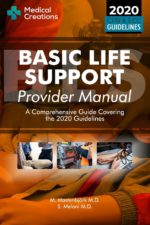
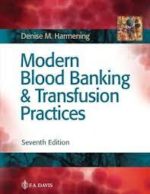

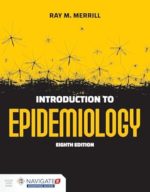
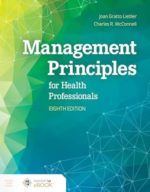
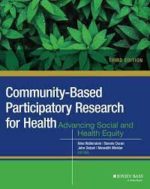
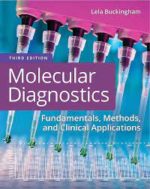
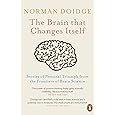
Be the first to review “District Laboratory Practice in Tropical Countries”